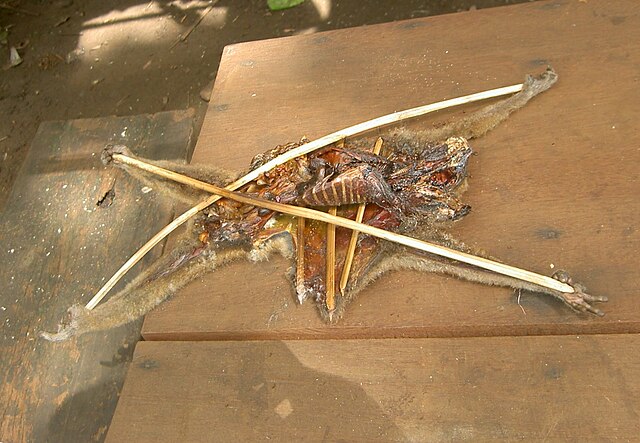Traditional African medicine
Traditional African medicine is a range of traditional medicine disciplines involving indigenous herbalism and African spirituality, typically including diviners, midwives, and herbalists. Practitioners of traditional African medicine claim, largely without evidence, to be able to cure a variety of diverse conditions including cancer, psychiatric disorders, high blood pressure, cholera, most venereal diseases, epilepsy, asthma, eczema, fever, anxiety, depression, benign prostatic hyperplasia, urinary tract infections, gout, and healing of wounds and burns and Ebola.
Ghanaian foods, used as traditional medicine, 2014
Nurse at Koidu Hospital in Sierra Leone consulting with patients.
Prunus africana with stripped bark.
Preparing and drying out freshly dug traditional medicines (muti)
Traditional medicine comprises medical aspects of traditional knowledge that developed over generations within the folk beliefs of various societies, including indigenous peoples, before the era of modern medicine. The World Health Organization (WHO) defines traditional medicine as "the sum total of the knowledge, skills, and practices based on the theories, beliefs, and experiences indigenous to different cultures, whether explicable or not, used in the maintenance of health as well as in the prevention, diagnosis, improvement and treatment of physical and mental illness". Traditional medicine is often contrasted with scientific medicine.
Traditional medicine in a market in Antananarivo, Madagascar
Botánicas such as this one in Jamaica Plain, Boston, cater to the Latino community and sell folk medicine alongside statues of saints, candles decorated with prayers, lucky bamboo, and other items.
Curandera performing a limpieza in Cuenca, Ecuador
Sometimes traditional medicines include parts of endangered species, such as the slow loris in Southeast Asia.








